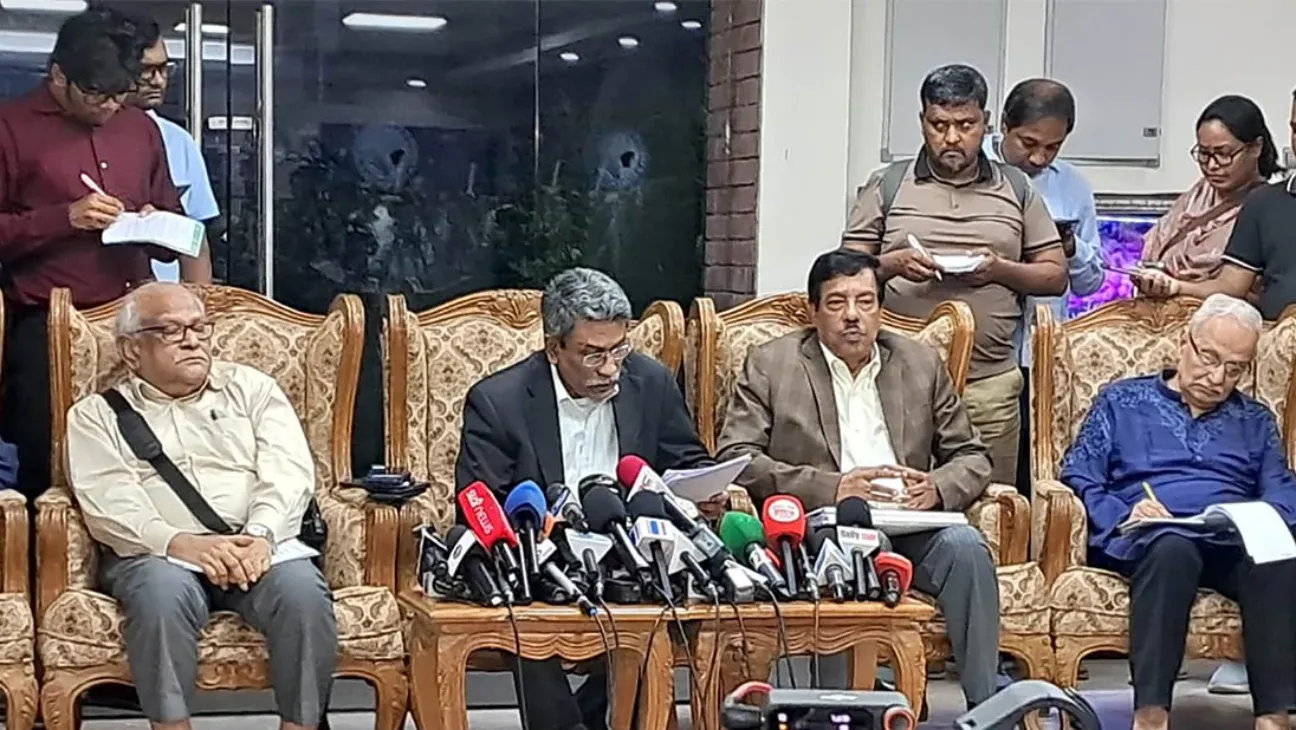Bangladesh’s major political parties have reached a broad consensus on strengthening the Anti-Corruption Commission (ACC) and protecting it from political interference, according to Prof Ali Riaz, vice-chair of the National Consensus Commission.
Speaking to reporters Monday afternoon after the 20th day of the commission’s second-phase dialogues with political groups, Riaz said a key proposal to grant the ACC constitutional status was positively received across the board.
“Representatives of all political parties and alliances viewed positively a proposal by the Anti-Corruption Reform Commission to incorporate the ACC into the constitution through a new article,” he said during the press briefing at the Foreign Service Academy in Dhaka.
He noted that while some parties suggested revising parts of the proposed structure, others submitted new ideas. “The National Consensus Commission will review these issues and continue discussions on Tuesday,” he added.
The day’s agenda originally included four constitutional and statutory bodies: the Anti-Corruption Commission, Bangladesh Public Service Commission (BPSC), Comptroller and Auditor General, and ombudsman. The issue of women’s representation in parliament was also listed. But, according to Riaz, only the ACC and BPSC were discussed in detail during Monday’s session.
On the BPSC, there was also general agreement on the need to insulate the institution from political control. Like with the ACC, several suggestions were made for revising its proposed framework.
These discussions are happening against a difficult backdrop. The public has little faith in watchdog agencies, and deep political divides are stalling any attempt to build long-term policy.
This has led some to propose a radical solution: writing the ACC directly into the constitution. While supporters argue it would be a game-changer, the actual plan for making that a reality is still a huge question mark.
“There were differing views on how the committees overseeing these bodies should be formed,” Riaz said. “The commission will assess those points gradually.”
There was a bit of drama earlier when the BNP delegation walked out of the meeting for a little while. Riaz confirmed the protest happened but made it clear that the commission heard their concerns. Thankfully, they came back after the commission asked them to, and Riaz thanked the BNP leaders for rejoining the discussion.
There was a massive turnout for the session, with 30 political parties in attendance. The BNP was joined by a wide political spectrum, including major players like Jamaat-e-Islami, the National Citizen Party (NCP), and the Liberal Democratic Party (LDP). The list of participants was rounded out by Gono Odhikar Parishad, Ganosamhati Andolan, the Communist Party of Bangladesh (CPB), the Revolutionary Workers Party, and the Amar Bangladesh Party (AB Party).
They’ll keep talking later this week. The real test, though, is whether these paper promises will translate into real-world reform or if the whole thing will stall. But for the moment, you’re seeing a rare display of political unity. On paper, at least.









